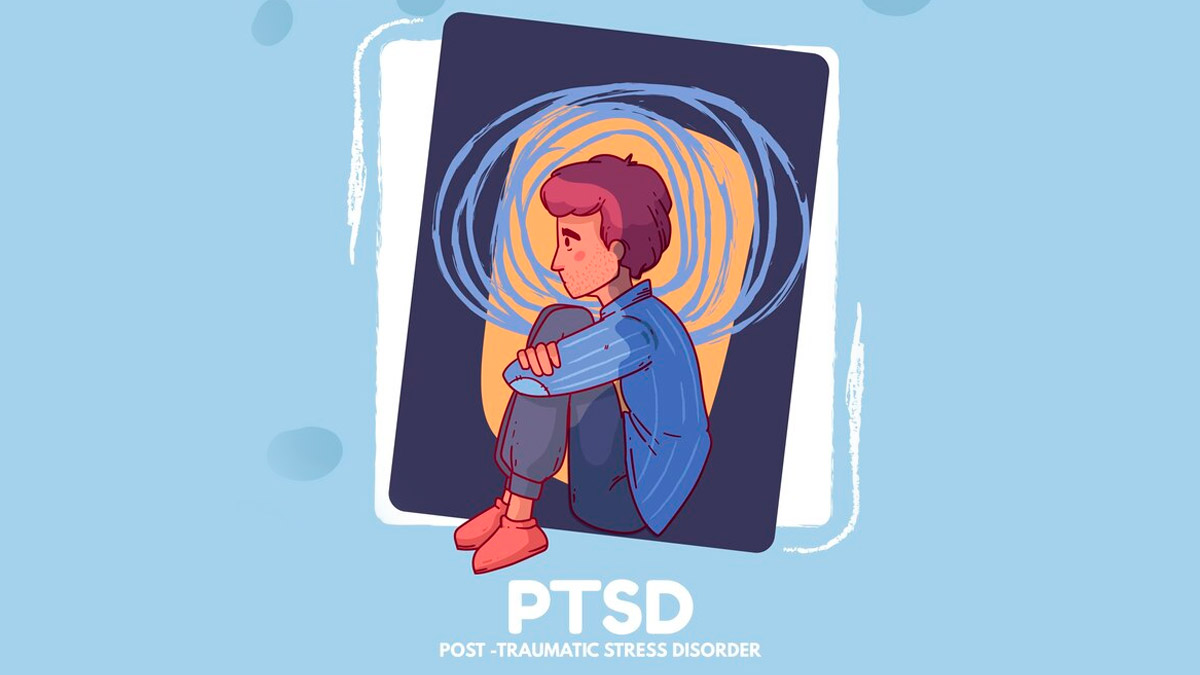
Post-Traumatic Stress Disorder (PTSD) is a mental condition that occurs when an individual faces any terrifying or frightening experience in their life. People with PTSD may have upsetting memories, intense emotions, and physical reactions because of that event. To understand the impact of PTSD on age, we spoke to our expert Munira Husein Mohsinally, Counselor and Educationist, who explained this in detail.
Table of Content:-
Mohsinally explains that it's a term closely associated with "stress," a word we often use when we can't quite express our feelings. She added For individuals with PTSD, dealing with this stress can be challenging, especially when they haven't found ways to cope with it.

Symptoms Of PTSD
Mohsinally listed the symptoms of PTSD as follows:
- Anxiety
- Nightmares and disturbing thoughts (can vary with bed-wetting)
- Not socialising
- Aggression in children(5 years -15 years) makes them feel no control over themselves or their lives.
Symptoms can range from behaviour changes to overthinking and can be seen in different situations for a long time, making it evident after a while.
Also Read: Mental Health Matters: Does PTSD Affect Relationships?
The Impact of Traumatic Experiences
Mohsinally explained, “A traumatic experience can be anything, such as a sudden shift of place in our life for which we are not prepared, death or separation from close ones or any kind of abuse. Trauma happens when the child or teen is not prepared or allowed to process their feelings in the situation they are asked to face, making them extremely vulnerable and then feeling anxious leading to traumatic stress.”

How To Deal With PTSD
Mohsinally added, “When children or teens face traumatic situations without proper emotional support, they can become vulnerable to anxiety and traumatic stress. In response, they may choose to confront the situation or avoid it altogether. However, they need strong emotional support from family and friends to face the situation. It is also important to discuss with a professional when one experiences symptoms of PTSD.”
Also Read: How Does PTSD Affect Sleep Quality? Psychiatrist Suggests Tips To Overcome Trauma

Age Doesn't Define PTSD
Mohsinally highlighted, “There is no fixed age group for this health condition. Even a very young child can experience a traumatic event. The key challenge lies in providing support, irrespective of age. Unfortunately, adults often underestimate the impact on children and teens, assuming they'll be fine over time. We live in a society that believes in denial of traumatic experiences rather than finding ways to deal with them and overcome them eventually.”
In a study published in the Annals of General Psychiatry, it was found that the prevalence of PTSD was significantly higher in participants aged 60- 93 years compared to those under 60 years old. These findings indicated a clear upward trend in the prevalence of PTSD with increasing age.
Managing PTSD
Mohsinally said, “Many alternative approaches, such as talk therapy, colour therapy, visual art therapy, drama therapy and journaling can be incorporated with medication (if required), to help the child/young teen deal with PTSD.”
Children and young adults may find it difficult to talk directly about it to anyone, so use an alternate way of doing something together, such as painting, scribbling, building or reading a book, to show your support”, added Mohsinally.
Bottomline
Mohsinally concluded, “Trauma makes the child or adolescent mistrust people easily as it’s not easy to talk about any trauma, be it death, separation or abuse of any kind. the proportions of all these situations seem to be up-scale. Therefore, extend that helping hand and reach out to them when they need your help.
[Disclaimer: The information in this article is shared by a registered healthcare professional and is for information purposes only. Hence, we advise you to consult your expert if you face any symptoms of PTSD to avoid complications.]
Also watch this video
How we keep this article up to date:
We work with experts and keep a close eye on the latest in health and wellness. Whenever there is a new research or helpful information, we update our articles with accurate and useful advice.
Current Version